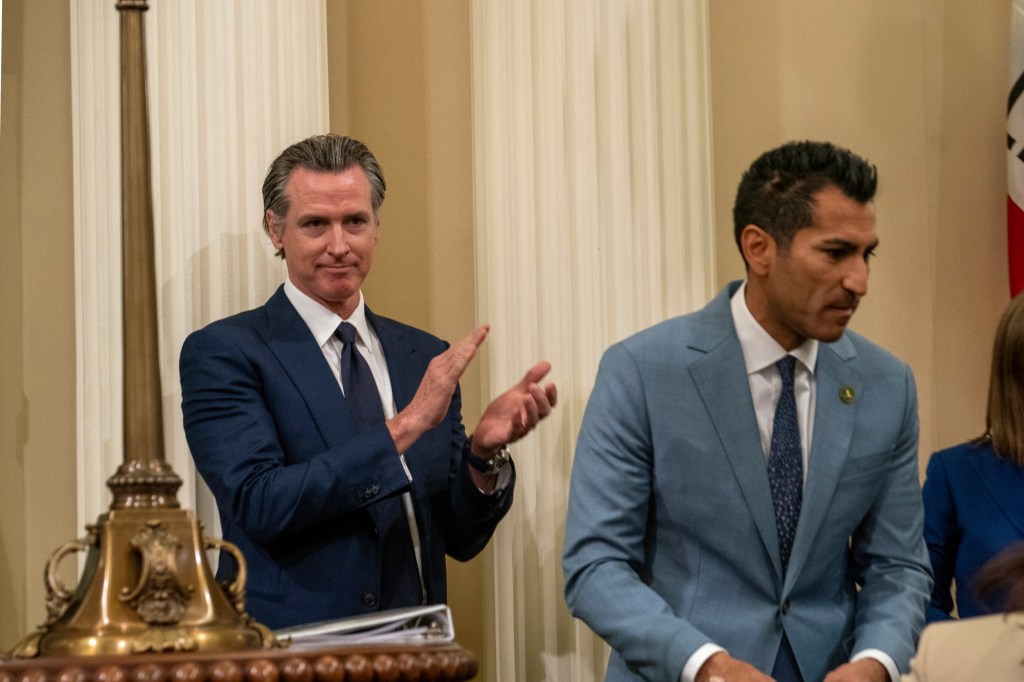
If Californians needed further proof that our political leaders don’t care about how much taxpayer money they spend on foolish, reckless, or self-serving projects, the end of the legislative session should remove all doubt.
Examples of wasteful spending are legion, but here are three examples that immediately caught our attention.
First, we regret to report that California’s cap-and-trade program has been extended to 2045. While other states are scaling back their more extreme climate policies, California politicians are eager to double down.
Cap-and-trade burdens working Californians the most for no measurable gain. This regulatory morass requires oil companies to buy emission allowances to cover the carbon emissions from the fuel they sell which results in California’s gas prices being among the nation’s highest, averaging $4.61 per gallon compared to the national average of $3.16, more than a dollar per gallon less.
Even the nonpartisan Legislative Analyst’s Office bluntly states, “If the program were to be extended for 15 years (until 2045), we estimate that emitters could potentially pay a couple of hundred billion dollars for allowances during this period. Many of these charges likely would be passed on to California households and businesses in the form of higher prices, such as for gasoline and diesel fuel.”
The money funds programs to help Californians, so says LAO. That’s a tough argument to make when $1 billion per year for the next 20 years is directed to the high-speed rail boondoggle.
Second, bending to the will of a presidential wannabe, Gov. Gavin Newsom, the majority party dutifully passed legislation blowing up California’s independent redistricting commission. This also requires voter approval, and it will be Proposition 50 on the ballot this November – not 2026 – a special election costing more than a quarter of a billion dollars of public funds. As polling in favor of Prop. 50 continues to slide, one has to wonder whether the $286 million to conduct this election is worth the cost to elevate one person’s political aspirations.
Third, our political leaders are just now beginning to grasp the financial consequences of a bill signed by Gov. Newsom in 2019. Intended to allow victims of sexual abuse committed in public schools or county facilities decades ago to seek justice, AB 218 allows plaintiffs to seek damages for assaults either up to the age of 40 or within five years of becoming aware of trauma. This has the effect of increasing the previous statute of limitations on cases by 14 years.
As well intentioned as this bill may have been, it has had devastating consequences for school districts, pushing some to the edge of bankruptcy.
As Eric He reported in Politico,“It’s been six years since Gov. Gavin Newsom signed AB 218, dramatically expanding the time people have to file lawsuits alleging they were sexually abused as children. Since then, school districts and other public entities have spent billions defending against the rush of lawsuits the law made possible.”
However, “Lawmakers have failed in the closing days of the legislative session this week to reach agreement on a piece of legislation that would provide some relief to school districts.”
While there is little doubt that many of these old claims are legitimate, the fact that many of the alleged abusers may have died or that there are no collaborating witnesses has allowed plaintiffs’ attorneys to press for expensive settlements with school districts which are motivated to avoid trials where the potential payouts for sympathetic victims could be massive.
From a taxpayers’ perspective, this is especially infuriating given that Gov. Newsom’s own Department of Finance warned at the time, “This bill could result in significant costs to state and local agencies to pay for judgment costs resulting from this bill.”
Even more infuriating for taxpayers is that politicians were so afraid of the optics of the “me too” movement that AB 218 did not receive a single no vote from either party.
It’s a shame that no politician was brave enough to ask the tough question about the cost to taxpayers.
Jon Coupal is president of the Howard Jarvis Taxpayers Association.



